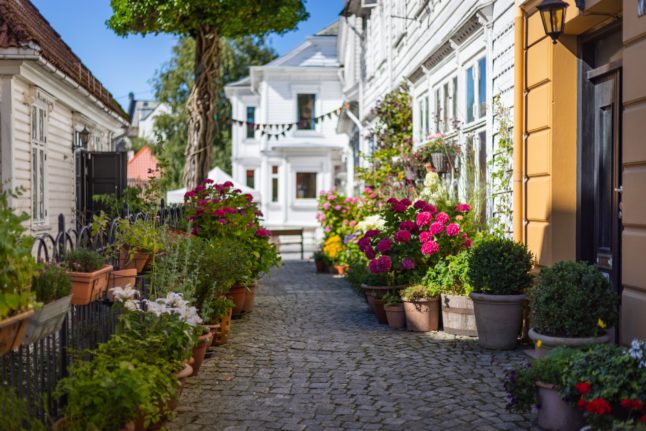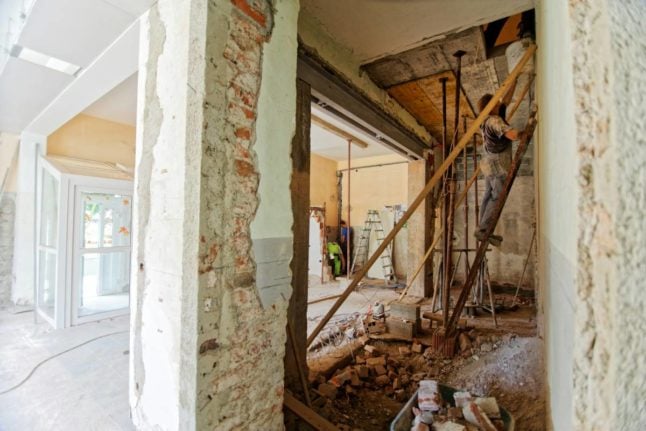Home prices in Norway rose by 1.9 percent in August 2022, according to the most recent housing price statistics from Real Estate Norway (Eiendom Norge).
Adjusted for seasonal variations, prices rose by 0.6 percent. At the end of August, the average price of a home in Norway amounted to 4,601,168 kroner.
“House prices rose sharply in August. It is common for house prices to rise in August, but the growth this year is strong for August, as the seasonally adjusted increase of 0.6 percent shows,” CEO of Eiendom Norge, Henning Lauridsen, stated in a press release.
“The (central bank’s) key interest rate was raised once again in August and is now back at the same level as before the corona pandemic.
“So far, the somewhat higher interest rates have not had an impact on the housing market, and that in itself is not surprising since interest rate increases have historically been slower than interest rate reductions. In the longer term, the interest rate will have an effect,” he added.
On the one hand, the Norwegian economy is characterised by high activity and low unemployment. On the other, Norwegians are feeling the pressure of skyrocketing electricity and food prices, as well as overall inflation, as well as rising mortgage repayments and interest rates.
In such turbulent times, many people who are currently paying rent in Norway are considering a purchase of a home to hedge against the volatility in the market.
But is that a good idea?
Consider buying a home – if you’re currently renting
The interest rate in Norway is still relatively low if you compare it to what it was just ten years ago, real estate agent Mads Wickmann at Nordvik Bolig AS told The Local.
“Historically speaking, in Norway, we see that home prices always increased – it just depends on how much. Look at the crisis in 2007 and 2008. Prices went down in that short period but continued to grow shortly after. The trend is always going up.
“With that in mind, if you’re renting a property, I’d say that it would be better to buy now – or at least start looking at properties. Remember, if you’re renting, you are just paying the actual owners of the property instead of investing in a property you will own and paying down your debt.
“While we haven’t seen an immediate effect of the increased interest rate in August, and prices rose, there will be an effect in the longer term. Furthermore, home prices in Norway are cyclical – they’re lower in the Autumn and Winter.
“We have some differences in the market after two years of the Covid-19 pandemic, but most years before that, you had prices go up in the first four months of the year, then a period of stagnation, and then a dip from October to December. Then prices start to grow again from January as buyer interest grows and due to the lack of properties on the market,” Wickmann explained.
He advises people to look into buying a property now so that they can participate in bidding rounds as soon as possible – especially if they have a partner or if they’re renting.
“It’s probably harder for single people, but with two wages, couples will likely be able to handle interest rate increases. My opinion? I would rather start looking into buying now than renting.
“Buy now, don’t wait; start making down payments. As time passes, you will have paid off some of your debt, and there is a chance of the property value increasing,” the Nordvik Bolig real estate agent pointed out.
Stay within your budget
Grethe Wittenberg Meier, head of PrivatMegleren, Norway’s third largest estate agency, agrees with Wickmann. She told The Local that prices are likely to go down this Autumn and that buyers should be out and in the market early.
“Try and see if there are properties you like in the market. See if you can get the right price. Prices will likely go down this Autumn, so it will be a good time to buy. It’s a good idea to get involved in the bidding process in the Autumn.
“Set a budget, stay within your budget, and you could get lucky. Furthermore, there will be more properties in the market that you can look at in the Autumn,” Meier said.
At the same time, both Wickmann and Meier pointed out that there is a lot of uncertainty in the market. The energy price crisis and overall inflation might affect both the broader economy and housing prices.
So far this year, as Eiendom Norge pointed out in its latest report, there has been a stronger development in housing prices than most experts expected at the start of 2022, and the year as a whole will probably end with a robust overall increase in home prices.



 Please whitelist us to continue reading.
Please whitelist us to continue reading.
Member comments